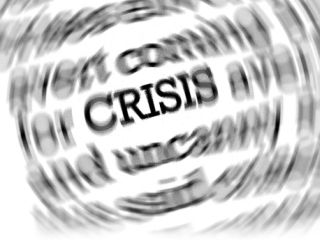
Small business owners face lots of potential crises. It’s a long list. And it spans the scale, from the physical destruction of a business to losing a major client to the downfall of a franchisor or sickness of a key person in the business.
As humans, we have a very effective in built mechanism for dealing with a crisis. It’s our flight or fight response. The physiological reaction to perceived threats. We get a rush of adrenaline and other chemicals and we are ready to run from that threat or stand our ground and fight.
This was extremely useful when we were living in caves dealing with sabre-toothed tigers. But we are no longer fighting deadly animals with nothing but clubs. The threats we face have changed, but our bodies haven’t.
The same rush of chemicals that spark a fight or flight reaction and bypasses our rationale mind still happens today. Our blood is sent to our limbs ready to run like the devil or swing a punch. That means not enough blood is getting to our brains where we need it most.
That’s why our thinking gets clouded; it’s hard to be rational when we are focused on short-term survival. We need better ways of dealing with the new breed of sabre-toothed tigers.
How to stay calm as a franchisee
The sabre-toothed tigers are always lurking and most often we don’t know when they will strike. Here are seven tips you can follow to ensure you stay calm in the next crisis.
1. Breathe
The fight or flight reaction channels our blood to our limbs. Breathing moves the blood back to where you need it – your brain. Most crises we face in business don’t require running or punching, but thinking.
Emotions can hijack you when you are faced with a crisis. Deep breaths counter that rush of emotion, and give you time to think. It is important to ‘feel the feelings’ and not suppress them. But being able to process the emotion and then move into a calm space is critical.
A franchisee friend of mine was facing a [potentially business ending] court case. It was emotionally charged and an extremely difficult period. Her way to stay cool as horrible accusations were thrown at her was to set an alarm on her phone to go off every hour. This was a reminder to breath; a circuit breaker. She credits the simple technique as the main thing that helped her stay cool and calm, keeping a level head during the court case.
2. Take a step back and get perspective
Human nature is to panic and think of the worst-case scenarios in any crisis. Heightened emotion can be a good thing when it drives us to act, but bad when it clouds thinking.
If you can, remove yourself from the immediate situation and look at it with fresh eyes. Take a walk around the block, do some exercise.
If you can’t get perspective for yourself, go find it. Read a newspaper or talk to someone in a worse situation. This is useful to reframe your thinking. When we are positive we are more likely to find solutions and keep going.
3. Get the facts
Before you react [unless of course it’s life threatening] get as much information as you can before you make any decisions. Work out the priorities and deal with them in order of urgency.
Don’t delay but make sure you have the information you need to move forward in an informed way.
4. Park your ego
Our ego can be very useful in a crisis nudging us to keep going and not give up. But it can also get in the way of sourcing the help we need. We can feel shame or reluctance to ask for help, particularly in financial situations.
Our ego can cause us to freeze and do nothing. Show the humility and courage to get the help you need. As the saying goes, the same level of thinking cannot fix the problem that created it.
5. Talk to your franchisor
Immediately and regularly! As soon as there is the whiff of an issue, start talking. They are there to help you through this. Chances are they have previously navigated a similar situation to yours. We regularly hear of franchisors providing assistance in a crisis. In most cases it’s in their interest to help you get back on your feet. Ask for help.
6. Take care of yourself
A crisis can be all consuming. You might stop sleeping well, stop exercising and eating properly. This just makes things worse. Stick to routines as best you can.
7. Prepare for the next one
The best way to survive a crisis is to prepare for it. Being cautious [not paranoid] means having a disaster recovery plan and a business continuity plan in place. Simple things like having all the appropriate insurances in place, making sure all key documents are current and that your team knows what to do. The best time to plan for a crisis is when you have the clear headspace to do it.
Things go wrong in business. Spending time now to plan and think through some of the ways you would deal with a crisis will put you in a much better position when the next sabre-toothed tiger pounces.

